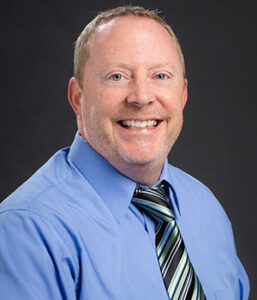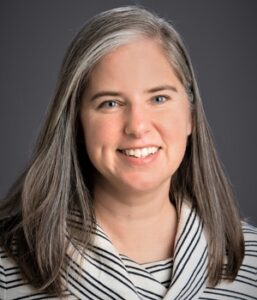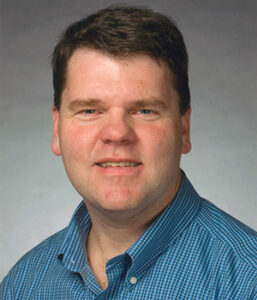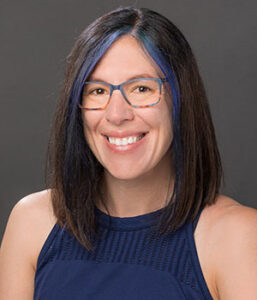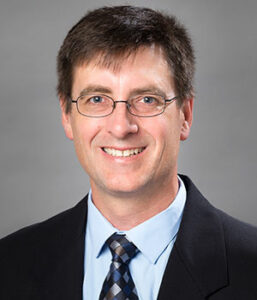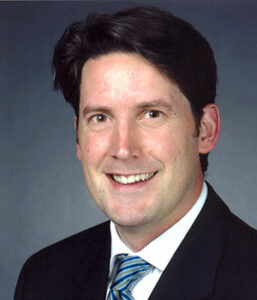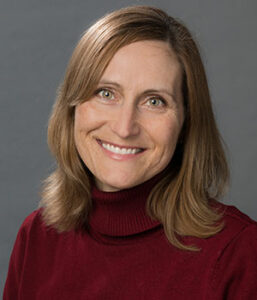MS: Kinesiology MS
The Kinesiology master’s program provides students with an understanding of the science of human physical activity, exercise, and sport, and their impact on health promotion, disease prevention, and performance.
Program Type
Master’s
Program Format
On Campus
Kinesiology is…
“…the academic discipline which involves the study of physical activity and its impact on health, society, and quality of life.”
– American Kinesiology Association
With a kinesiology master’s, you have endless possibilities. Some of the many occupations you could pursue are physical activity & public health specialist, teacher in higher education or performance director/specialist.
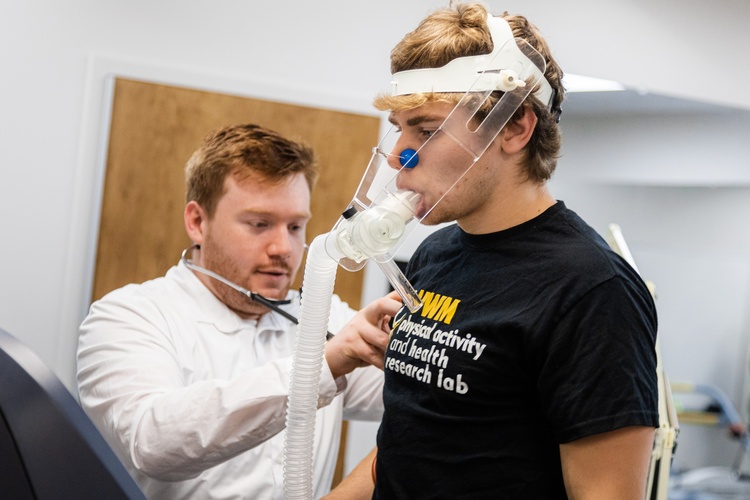
This degree prepares students for:
- Continuing their education in a doctoral program
- Continuing their education into a professional program such as physical therapy, rehabilitation, physician assistant or medicine
- Becoming specialists in strength and conditioning, performance, or clinical exercise physiology
- Advanced professional application of Kinesiology concepts
Degree options
The Master of Science (M.S.) degree in Kinesiology is offered with different program lengths ranging from 12-24 months with a choice to individually fit your needs.
- Option A Thesis: This is typically for those students who want to engage in research and who are considering pursuing a Ph.D. after their M.S. degree. Areas of emphasis include Exercise Physiology, Physical Activity & Health, Neuromechanics (including Biomechanics and Motor Control & Behavior) and the Psychosocial Aspects of Health Behavior.
- Option B Applied Focus Internship/Project: This is typically for those students wanting to apply the science of the degree and follow a programmatic focus within the M.S. Program. For instance, this includes a focus dedicated to Performance Physiology, Strength and Conditioning or Clinical Exercise Physiology. Different foci prepare students to sit for national certifications such as the National Strength and Conditioning Associations Certified Strength and Conditioning Specialist (NSCA-CSCS) or the American College of Sports Medicines Certified Clinical Exercise Physiologist (ACSM-CEP).
- Option C Exam: This option offers students an emphasis M.S. degree choice area with a qualifying exam at the end of their chosen course work without the need to complete a thesis or an applied internship/project. This option can also be completed fully online.
At the time of application you will be asked to choose which option you would like to follow. You may change options during your graduate studies with the approval of the Kinesiology graduate program director.
For additional information, please contact Scott J. Strath, PhD, FACSM – M.S. Kinesiology Program Director at sstrath@uwm.edu or 414-229-3666.
To apply to the kinesiology master’s program, you must apply to the UWM Graduate School and meet the admission requirements.
In addition to UWM Graduate School requirements, you must be prepared to meet the following departmental requirements to be considered for admission to the program:
1. Two letters of recommendation and
2. A narrative statement (You should indicate your preferred choice of Option A, B or C in the narrative statement.)
If you are considering UWM for Graduate School, please consult the graduate program director, Scott J. Strath, PhD, ASCM Fellow at 414-229-3666 or sstrath@uwm.edu as early as possible.
Program Curriculum
Credits and Courses
The minimum degree requirement is 30 graduate credits for Options A (thesis), B (project or internship) and C (comprehensive examination).
- Option A students must take no fewer than 18 credits of core courses, 6 credits of elective courses, and 6 credits of thesis.
- Option B students must take no fewer than 18 credits of core courses, 6 to 9 credits of elective courses, and 3 to 6 credits of project or internship courses.
- Option C students must take no fewer than 18 credits of core courses and 12 credits of elective courses.
Students must take elective courses from KIN courses at the 500-level or higher; 3 graduate credits may be taken from outside of KIN.
Option A: Thesis Option
| Core Competency | |
| KIN 702: Statistical Analysis in the Health Sciences | 3 |
| KIN 703: Research Methods in Kinesiology | 3 |
| PH 801: Seminar in Public Health Research | 3 |
| Biomechanics and Motor Behavior | |
| Select one of the following: | 3 |
| KIN 520: Introduction to Biomechanics Research | |
| KIN 522: Biomechanics of Athletic Performance | |
| KIN 561: Investigating Motor Behavior in Health, Aging, and Disease | |
| Exercise Physiology | |
| Select one of the following: | 3 |
| KIN 530: Physiology of Performance | |
| KIN 531: Clinical Exercise Physiology | |
| Sociocultural and Behavioral Aspects | |
| Select one of the following: | 3 |
| KIN 556: Multilevel Approaches to Changing Physical Activity and Eating Behaviors | |
| KIN 574: Obesity and Weight Management | |
| KIN 580: Sports Nutrition | |
| Electives 1 | 6 |
| Thesis | 6 |
| KIN 895: Research and Thesis | |
| Total credits | 30 |
Students prepare a research thesis, which will earn 6 credits within the required 30 graduate credit minimum. Each student is responsible for initiating contact and dialog with the major professor to identify a thesis committee before completing 12 graduate credits.
The thesis committee will consist of a minimum of three members. The major professor from the Kinesiology Program will serve as the committee chair. The remaining members may be UWM Graduate Faculty or individuals from outside the UWM Graduate Faculty that hold a doctorate and are actively engaged in scholarly inquiry in the field, or related field, associated with the thesis topic. An individual who is not a member of the UWM Graduate Faculty will be required to file a curriculum vita with the MS Kinesiology Program Director and be approved by the Kinesiology Graduate Faculty prior to serving as a committee member. The Major Professor approves a program of study designed to lead the student into the thesis research area.
Option B: Project or Internship Option
| Core Competency | |
| KIN 702: Statistical Analysis in the Health Sciences | 3 |
| KIN 703: Research Methods in Kinesiology | 3 |
| PH 801: Seminar in Public Health Research | 3 |
| Biomechanics and Motor Behavior | |
| Select one of the following: | 3 |
| KIN 520: Introduction to Biomechanics Research | |
| KIN 522: Biomechanics of Athletic Performance | |
| KIN 561: Investigating Motor Behavior in Health, Aging, and Disease | |
| Exercise Physiology | |
| Select one of the following: | 3 |
| KIN 530: Physiology of Performance | |
| KIN 531: Clinical Exercise Physiology | |
| Sociocultural and Behavioral Aspects | |
| Select one of the following: | 3 |
| KIN 556: Multilevel Approaches to Changing Physical Activity and Eating Behaviors | |
| KIN 574: Obesity and Weight Management | |
| KIN 580: Sports Nutrition | |
| Electives 1 | 6-9 |
| Project or Internship | 3-6 |
| Capstone Project | |
| KIN 890: Capstone Project | |
| Total credits | 30 |
Students prepare a capstone project or an internship, which will earn up to 3 or 6 credits, within the required 30 graduate credit minimum for graduation. Each student, with assistance from the MS Kinesiology Graduate Program Director, will be responsible for initiating contact and dialog with an identified major professor about their capstone project or internship before completing 12 graduate credits.
Option C: Comprehensive Examination Option
| Core Competency | |
| KIN 702: Statistical Analysis in the Health Sciences | 3 |
| KIN 703: Research Methods in Kinesiology | 3 |
| PH 801: Seminar in Public Health Research | 3 |
| Biomechanics and Motor Behavior | |
| Select one of the following: | 3 |
| KIN 520: Introduction to Biomechanics Research | |
| KIN 522: Biomechanics of Athletic Performance | |
| KIN 561: Investigating Motor Behavior in Health, Aging, and Disease | |
| Exercise Physiology | |
| Select one of the following: | 3 |
| KIN 530: Physiology of Performance | |
| KIN 531: Clinical Exercise Physiology | |
| Sociocultural and Behavioral Aspects | |
| Select one of the following: | 3 |
| KIN 556: Multilevel Approaches to Changing Physical Activity and Eating Behaviors | |
| KIN 574: Obesity and Weight Management | |
| KIN 580: Sports Nutrition | |
| Electives 1 | 12 |
| Total Credits | 30 |
Students will take a comprehensive examination in the semester in which they apply for graduation. The comprehensive examination will be a 100 question multiple-choice exam with 25 items from the Core Competency and 25 items each from Biomechanics and Motor Behavior, Exercise Physiology, and Sociocultural and Behavioral Aspects of Kinesiology.
Each student is responsible for requesting to take, and setting a date, for the comprehensive examination by notifying the MS Kinesiology graduate program director by the end of the first week of the semester in which they will apply for graduation. The MS Kinesiology graduate program director approves a program of study designed to lead the student into the comprehensive examination.
For information regarding curriculum and course descriptions, visit the UWM Academic Catalog.
Additional Requirements
Major Professor or MS Kinesiology Program Director as Advisor
The Graduate School requires that each student have a major professor to advise, supervise and approve the program of study before registering for courses. Each student in Option A and B will be assigned an advisor upon admission. Students in Option C will be advised by the MS Kinesiology graduate program director.
Thesis, Project, or Comprehensive Examination
The student in Option A (thesis) or in Option B (project) must pass comprehensive oral examination in defense of the completed project. The student in Option B (internship) must write a paper on a related question for the internship and give an oral presentation. The student in Option C (comprehensive examination) must pass the exam.
Time Limit
The student must complete all kinesiology master’s degree requirements within five years of initial enrollment.
- Professor, Kinesiology, ACSM Physical Activity in Public Health Specialist
- cgreenl@uwm.edu
- 414-229-5341
- Enderis Hall 419
- Associate Professor, Nutritional Sciences Undergraduate Program Director, MPH-Nutrition & Dietetics Program Director
- lklos@uwm.edu
- 414-251-8220
- Enderis Hall 455
- Professor, UWM Associate Vice Provost for Research
- krisocon@uwm.edu
- 414-251-5277
- Enderis Hall 471
- Professor, Kinesiology Graduate Program Director
- sstrath@uwm.edu
- 414-229-3666
- Enderis Hall 449
- MS KIN Student Handbook Fall 2022
- MS Student Handbook for students who began the program prior to Fall 2022

